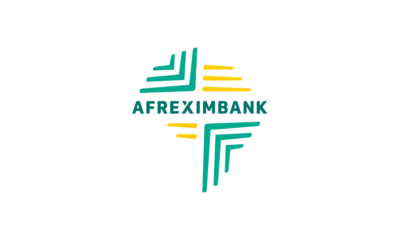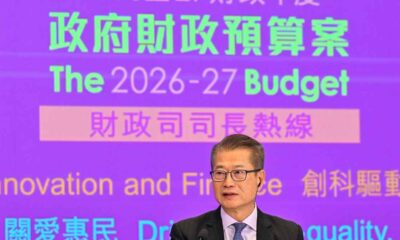Harnessing Africa’s unique appeal to boost tourism and economic growth will take centre stage at the upcoming API Hospitality & Residences Forum 2024
CAPE TOWN, South Africa, August 28, 2024/APO Group/ —
Africa’s tourism sector is poised for an exciting ascent, and it has the potential to soar if it is propelled by visionary strategies and robust investments that harness the continent’s unparalleled tourist allure.
Amid the unprecedented changes of recent years, Africa’s tourist appeal is greater than ever. With the right steps, it can offer more top destinations for today’s tourists. The API Hospitality & Residences Forum is a pivotal platform for Africa’s hospitality industry that is legendary for its dealmaking, networking, and unique insights. It takes place on 19 September 2024 at the Westin Hotel in Cape Town on the first day of the highly anticipated two-day API Summit.
This year’s API Summit is themed “Impact”, and industry leaders speaking at the API Hospitality and Residences Forum highlight the key to unlocking the full potential of Africa’s tourism sector to foster sustainable growth and enhance the continent’s appeal to both travellers and investors includes focused investments, strategic partnerships and robust public sector involvement. The API Hospitality & Residence Forum sets the stage to catalyse and nurture these outcomes.
Bani Haddad, Founder and Managing Director of Aleph Hospitality, the largest independent hotel management company in the Middle East and Africa, will be among the distinguished speakers. “The pandemic had several profound effects on the tourism sector,” Haddad reflects. “One of the most noticeable impacts has been the increased desire among travellers for domestic or regional trips, as well as nature-based or less crowded destinations. Africa is uniquely positioned to benefit from these trends.”
Citing the latest Chain Development Pipeline report by W Hospitality, Haddad notes a 20% growth in the number of hotel rooms in Africa since 2020, reaching a total of 92,134 rooms. “This growth indicates that the supply is expanding across the continent to meet the rising demand. We are also witnessing an increase in the quality and branded hotel supply in resort destinations such as Zanzibar and national parks like Serengeti and Mara. The global demand for nature and experiential experiences presents a significant opportunity for Africa, which has much to offer in this regard.”
Haddad continues, “Investing in and fostering partnerships within the tourism sector is not just beneficial but essential for unlocking its full potential in Africa.”
Such efforts can lead to comprehensive economic development, job creation, and the promotion of sustainable and inclusive growth. He emphasises that governments, private sector players, and international organisations all have crucial roles in facilitating these investments and partnerships to ensure the tourism sector thrives and significantly contributes to the continent’s development.
Echoing this sentiment, Daniel Trappler, Senior Director – Development Sub-Sahara Africa at Radisson Hotel Group (RHG), who will also speak at the event, outlines RHG’s strategic plans in the post-COVID landscape. “RHG plans to capitalise on growth opportunities in key value nodes such as Cape Town, Victoria Falls, Zanzibar, and leisure offerings in the coastal and safari segments across Southern and Eastern Africa. Within these nodes lies the opportunity to increase RHG branded supply to meet the obvious growing demand.”
The global demand for nature and experiential experiences presents a significant opportunity for Africa, which has much to offer in this regard
Trappler highlights RHG’s eagerness to expand its footprint in Cape Town’s 5-star and luxury segments, which have consistently performed above the market average despite higher rates. In Victoria Falls, RHG aims to replicate the success of its Zambezi River’s Zambia side, planning to introduce the upscale Radisson brand to Victoria Falls, Zimbabwe.
“We are actively seeking partners to bring our Radisson, Radisson Blu, or Radisson Collection brands to Zanzibar, given RHG’s significant presence in Eastern Europe, the largest source market for Zanzibar,” Trappler adds.
Since opening its new Radisson Safari Hotel Hoedspruit, RHG has set its sights on replicating the same model within Southern and Eastern Africa, capturing both the foreign market and the regional market, which prefers short travel distances for tourism needs.
“The group is developing resort offerings in various safari and coastal locations, including Masai Mara, Serengeti, the Kenyan coast, Seychelles, Mauritius and the wildlife territories in Namibia and Botswana.”
Trappler underscores the critical role of investment and public sector involvement. “The contribution of tourism to GDP is evident across the region. National and local governments need to increase their awareness of the sector’s potential contribution to GDP. In South Africa, where RHG aims to double its portfolio, we need to see more active interest and contributions from the public sector towards developing hotels and hospitality infrastructure.”
He stresses the need for public sector initiatives driving growth in this sector, particularly in South Africa, where the sector is strong but could be a much larger contributor to GDP and employment creation.
The API Hospitality & Residences Forum is a unique pan-African event that brings hospitality-focused leaders and investors together with Africa’s leading real estate community. Sponsored by industry giants like Radisson Hotel Group, Marriott Hotels, HTI Consulting, JLL, and Tui Blu, the forum offers an unparalleled platform for doing business in African hospitality.
With over 500 leaders expected to attend the summit, including more than 250 hospitality delegates, in excess of 75 hotel brands, operators and owners, and 35 speakers, the API Hospitality & Residences Forum is the premier gathering of Africa’s leading hospitality professions and consultants.
Distributed by APO Group on behalf of API Events.


 Energy5 days ago
Energy5 days ago
 Business4 days ago
Business4 days ago
 Business5 days ago
Business5 days ago
 Business3 days ago
Business3 days ago
 Business5 days ago
Business5 days ago
 Business4 days ago
Business4 days ago
 Events3 days ago
Events3 days ago
 Business4 days ago
Business4 days ago















